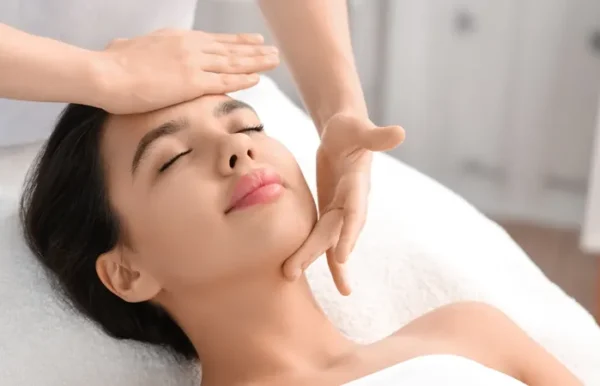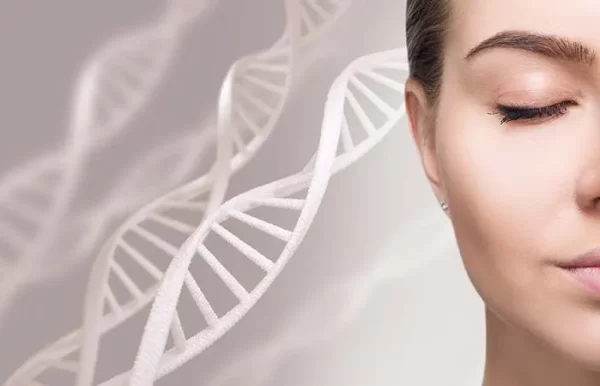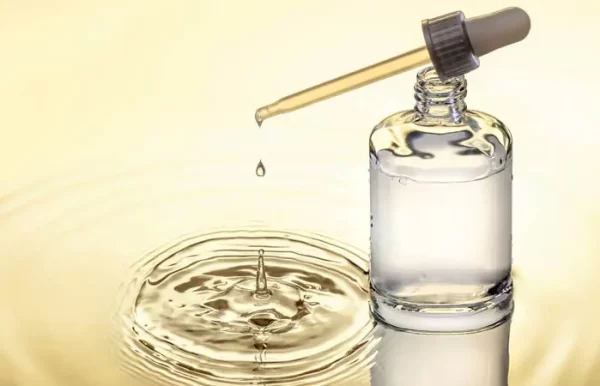Facts About Retinol
As middle age approaches, so do the signs of aging on the skin. Regardless of sun exposure, aging skin loses collagen and elastin. These two fibers are woven within the skin giving both strength and springiness which translates to a youthful appearance. This is the same aging process aging process that causes us to develop wrinkles, frown lines, age spots, or puffiness, bags under the eyes, and an overall tired appearance.
One may be eager to find a readily available cream to remedy these issues. An easy first step is to start using a skincare product with retinol as the primary active ingredient. Retinol is a potent ingredient which forms the backbone of many anti-aging creams and other anti-aging preparations such as Clinique Skin Care, Creme De La Mer, Image Skin Care, SIO Beauty, and Instantly Ageless. Purchase a retinol cream or retinol serum and you’ll very quickly notice the benefits of this item at removing lines and wrinkles. (The trials of prescription tretinoin 0.05% showed fine line/wrinkle improvement at 16 weeks which isn’t very fast. Usually, patients discontinue a retinoid for cosmetic indications d/t not seeing the benefit. I think this should be more an emphasis on daily habits over the long-term than a quick fix.
The seminal study from 1986 showed slight improvement at 3 months on forearm skin and noted plumping of the upper layers of the dermis on facial skin after 1 year.
Kligman AM, Grove GL, Hirose R, Leyden JJ. Topical tretinoin for photoaged skin. J Am Acad Dermatol. 1986;15(4 Pt 2):836-859.)

What is Retinol?
Retinol is a form of Vitamin A that is able to be purchased over the counter. There are actually several types of retinol, some of which are in over the counter products like gels, retinol creams, retinol serums, and retinol eye creams. Others only are given by prescription from a dermatologist due to their much stronger potency—these are called retinoids.
There are numerous retinol benefits, including diminishing acne, eliminating dry skin, fading areas of pigmentation, help increase the amount of water lost by the skin, and retinol for wrinkles and fine lines help target dark circles, puffiness and crow’s feet. (1)
How Retinol Works
If you’re wondering what retinol does to your skin, we’re about to tell you in some detail. Retinol initiates the production of additional collagen in the skin. As we age, collagen diminishes, and this can lead to saggy skin and forehead wrinkles. The increased collagen firms the skin and makes it more elastic. Retinol results in smoother skin with less wrinkles and lines. (1)
Retinol has the ability to give you a younger appearance. This improvement of skin health is why retinol-based products are used to treat many skin conditions, most commonly acne.
How Much Retinol Should You Use?
How much retinol is effective? It depends on whether you already use retinol and your skin type. Retinols and retinoids come in varying potencies noted with a percentage. For example, retinol 0.3% or tretinoin 0.05%. Retinol 0.25% or prescription tretinoin 0.025% are the starting doses and many users see minimal effects at potencies lower than these.
Which retinol should you start with? If you’re just beginning to use retinol, begin at 0.25%. Work your way up to a stronger potency over time—reassess after 2-3 months of regular application. If the product is too irritating with regular use, try applying every other night and build up slowly, or decrease the potency percentage to the next lower rung. If you have skin that tends to dry, use the lowest percent and slowly climb upward. It is not a race to the top! The goal is to find the right strength that does not cause irritation with daily application. If your skin is thick and oily, use a more concentrated product such as Rodan + Fields, Proactiv, Murad Skin Care, and Mary Kay.
ALSO READ – Peptides for Skin and Alpha and Beta Hydroxy Acids
Which Retinol is Best?
There are actually several types of retinol, with some slight differences between them. Which is best depends on the reason you want to use it, as they each have their strengths (2):
- Retinyl Palmitate
- Retinaldehyde
- Tretinoin
- Tazarotene
- Isotretinoin
Retinyl palmitate is the least potent, yes but there isn’t really an official “ladder” of retinaldehyde vs retinol at least in the medical literature. There are prob tons of people who say one is more irritating than the other and maybe that means it’s more potent.
Retinyl palmitate = near placebo, retinaldehyde, and retinol, adapalene, tretinoin, tazarotene in terms of increasing potency.
Isotretinoin to the other topicals is apples to oranges. It’s used in acne for an entirely different mechanism that isn’t understood, but only isotretinoin (13-cis-retinoid acid) shuts off the oil glands—its converted to tretinoin in the skin.
Who is Retinol Skincare Good For?
Retinols are for everyone after the age of 20 as part of a balanced skin care regimen. If you are trying to look younger, try retinol for wrinkles, fine lines, and age spots. It’s also a good remedy for people who suffer from acne or dry skin.
Are Retinol Products Safe?
Is retinol safe? There is a possibility that you could get peeling, facial redness, and irritation from using retinol. This usually occurs when you use too much, or too high a concentration for your skin. If this occurs, go down to a lower concentration, or stop using the product. In addition, instead of using retinol every night and morning, use it every other day for a while to see if your skin is okay. (3)
SEE ALSO – Argireline and Vitamin E for Skin
People Also Ask
Q: Can retinol help rosacea?
A: Most derms will not Rx topical retinoid for rosacea. Maybe minimize retinol has a role in treating rosacea but see a dermatologist see if you’re a candidate for retinol therapy.
Q: Will retinol get rid of blackheads?
A: Yes, it will. If you’re interested in how retinol works, one thing it does is unclog the pores and eliminate the congestion that leads to blackheads.
Q: Can retinol help with acne?
A: Yes, retinol for acne is an excellent treatment option. Retinol unclogs the pores and cleans out the dirt and oils which can lead to the development of acne. In addition, retinol also helps bring new skin cells to the surface. As such, this can clear up your condition.
Q: Who Sells Retinol?
A: It’s a common ingredient in many skin care products on the market such as No. 7 Serum, Meaningful Beauty, Nerium Retinol Creams, and The Ordinary Retinol including gel, retinol cream, retinol serum, and retinol eye cream. You can also get it from a dermatologist by prescription if you require a very strong dosage.
Q: Can retinol make skin worse?
A: Let’s make one thing clear: retinol benefits skin. Retinol is one of the most potent skin care substances there is and it has many positive uses in dermatology. However, sometimes retinol usage can lead to a rash, redness, or itchy skin. This often occurs if you’ve used too high a concentration for your skin type, or you’re new to using the product and you’re not accustomed to it yet. Ultimately retinol should benefit your skin, but if it does not, don’t keep using it.
Q: Where is retinol skincare derived from?
A: The retinoids are derived from animals. They often come from liver, fish, egg yolks, heavy cream, and butter. There is also a Vitamin A that comes from plants, called carotenoids. They contain beta-carotene, which becomes Vitamin A in the body (4).
Q: What does retinol do to your skin?
A: Retinol is added to creams and serums like Perricone MD, Mario Badescu, Obagi360 Retinol, and Crepe Erase that go on your skin. It boosts the amount of collagen your body makes and plumps out skin, cutting down fine lines and wrinkles. It also improves skin tone and color and reduces mottled patches.
Q: Why is retinol bad for you?
A: One of the main side effects of using too much retinol is that it makes your skin more sensitive to UV sunlight, in particular. Combination therapy with SPF 50+ sunscreen is strongly advised.
Q: Can retinol products damage skin?
A: Apart from smoothing skin, retinol products may cause irritation, redness, flaking, and peeling which stops after the product is discontinued or the potency is decreased.
Q: What age should I start using retinol?
A: Begin in Your Mid ’20s or Early’30s. “Your mid-twenties are a great time to start using retinol,” says Ellen Marmur, M.D.
Conclusion
Retinol skincare is a powerful skin ingredient which has the ability to eliminate acne, to blend and reduce pigmentation, and to fill fine lines and wrinkles. It can initiate the production of collagen in the skin. Consequently, this leads to firmer skin and it eliminates some of the signs of aging.
Begin using this substance as a part of your skin regimen, and you’ll love the retinol before and after. This ingredient will completely reform your skin and give it a younger, fresher appearance. Start at a low percentage because you want to see how it affects your skin first. Then you may move to a higher dosage.
If you have a serious skin condition, go to a dermatologist so you can get a prescription for strong retinol. In fact, anyone who is starting out with retinol should consider going to a skin doctor first to make sure it’s suitable for usage on your skin.
READ NEXT – Hyaluronic Acid and Cyclopentasiloxane & Dimethicone Silicones






 This article changed my life!
This article changed my life!
 This article was informative.
This article was informative.
 I have a medical question.
I have a medical question.

 This article contains incorrect information.
This article contains incorrect information.
 This article doesn’t have the information I’m looking for.
This article doesn’t have the information I’m looking for.